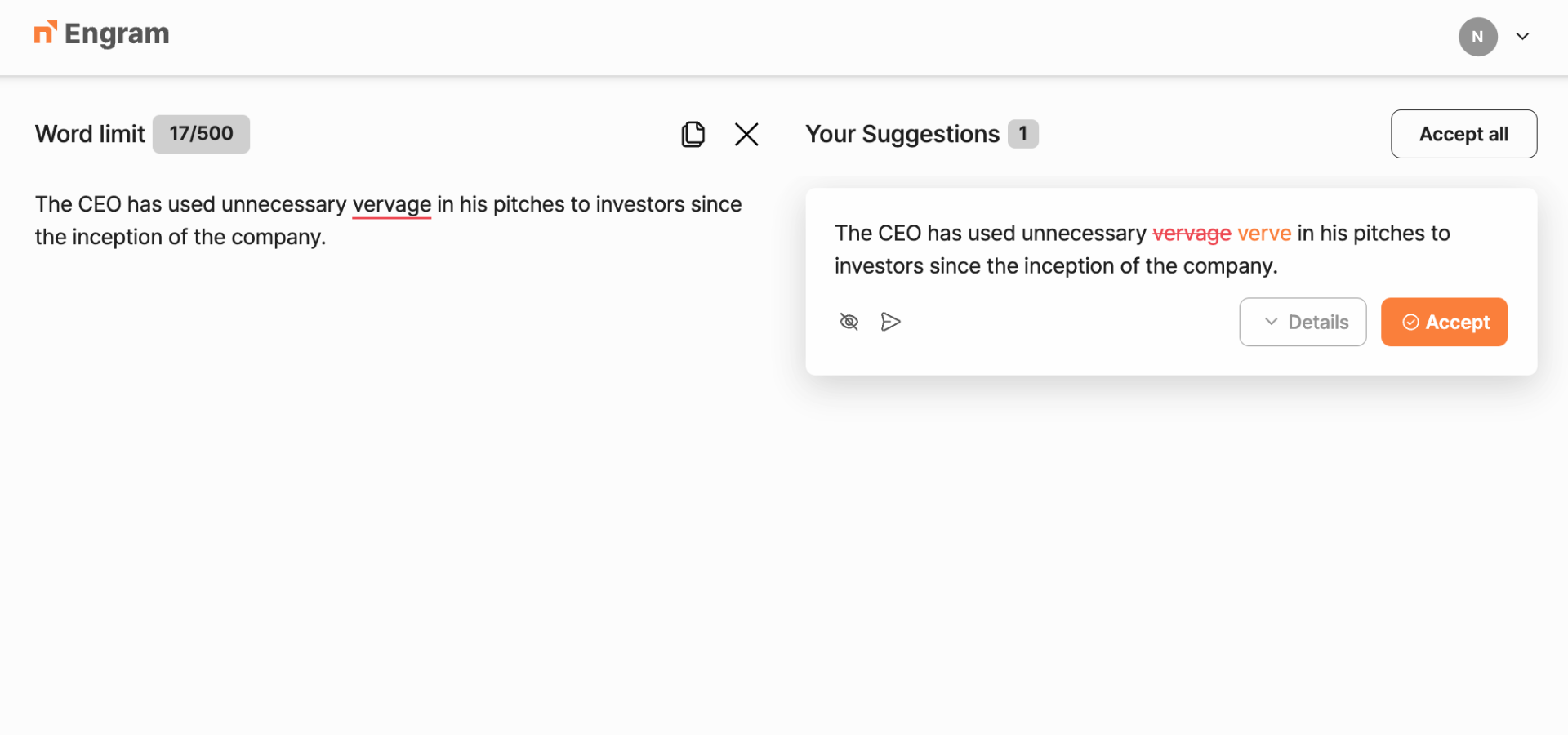Verbage is a common misspelling of Verbiage. Using verbage instead of verbiage may lead to confusion in written communication.
Verbiage is writing or speech that uses excessive technical words and phrases. It's commonly used to describe overly complex or verbose language that can make communication less clear or concise.
Verbiage is commonly pronounced as either vur·bee·uhj or vur·baj, and because of the latter pronunciation, the word is commonly misspelled as verbage. The only correct spelling of the word, however, is verbiage.
Imagine someone who is trying to explain a simple idea but ends up using many more words than needed, making the explanation confusing or difficult to understand. That excessive use of words that doesn't add much value to the communication is what we call verbiage.
Through the Google Books Ngram Viewer, we can see that verbiage has a much higher use than its misspelling verbage in Google’s database of published books in both American and British English since the year 1800.

Example sentences
Let us take a look at how verbiage is used in a sentence. Because verbage is an incorrect spelling, all of the below example sentences only contain the correctly spelled verbiage.
- The CEO always used unnecessary verbiage in his pitches to investors since the inception of the company.
- The user manual was rich in verbiage, which made it difficult to follow for most people.
- Marvin thought the more verbiage the better, so he saturated his paper with difficult jargon which ended up making the professor give him a low score.
- When Myra writes historical stories, she makes sure to study the verbiage of the time to make the dialogue in her book as accurate to the time period as possible.
- Renée could not understand all the particular verbiage that the archeologist used, so she just wrote her best summary for the article which will be in tomorrow’s newspaper.
- The businessman tried to hide his ignorance of the topic by using fancy verbiage, some words of which he did not use correctly.
- Please avoid using redundancy or superfluous verbiage in the essay part of the exam.
- I had difficulty understanding the legal verbiage in this contract, so I am considering hiring a lawyer.
- Verona used useless verbiage and made pretentious hand gestures during her speech which made the audience particularly unfond of her.
- Did you know that the new employee Orlando learned all the technical verbiage overnight?
- "Verbage" is not the correct spelling; the correct term is "verbiage."
- "Verbage" is a common misspelling that should be corrected to "verbiage."
- In formal communication, it is crucial to use the standard spelling, which is "verbiage," not "verbage."
- If you want to convey your thoughts accurately, always choose "verbiage" over "verbage."
- In dictionaries and language references, you will find "verbiage" listed, but not "verbage."

If you’re having trouble recalling if the correct spelling is verbiage or verbage, just remember that verbiage means an excessive amount of technical jargon and that means it also has an extra i because of its excessiveness.
You can also use a spell-checker to help guide you to the correct way of writing the word. Engram also offers a free proofreader that checks spelling, grammar, and how natural your writing sounds.

Language is an ever-changing entity, and the spelling of words can change over time. Who knows? Perhaps one day the spelling of the word verbiage will also change into something complete different or it may be spelled different in some regions of the world while remain the same in others. For now, however, the word is still spelled verbiage.

Reference:














